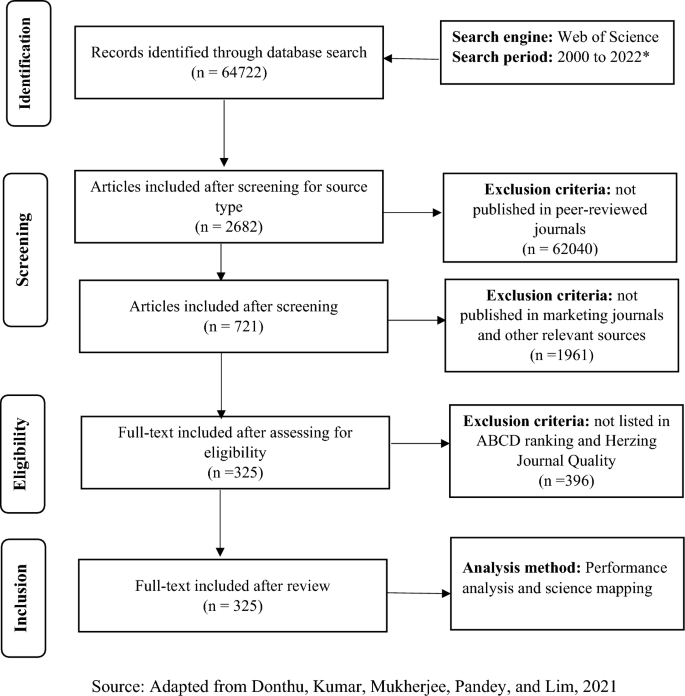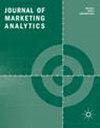Mapping sharing economy themes: science mapping, topic modeling, and research agenda
IF 3.5
Q2 BUSINESS
引用次数: 0
Abstract
Abstract Digital and sharing platforms are transforming the business landscape and significantly impacting the global economy. This study provides a systematic review of the sharing economy (SE) in marketing and presents a future research agenda to advance the discipline. A comprehensive approach is utilized, incorporating bibliometric analysis, performance analysis, science mapping techniques, and topic modeling to analyze sharing economy research within marketing. The dataset comprises 325 articles on the sharing economy, from which eight key topics are identified: (1) analyzing customer ratings and sentiments, (2) understanding and evaluating customer experience, (3) customer orientation towards peer-to-peer accommodation services, (4) mapping customer relationships in the sharing economy, (5) analysis of user loyalty, (6) development of marketing strategies to enhance platforms, (7) identification of platform openness, and (8) actors within the digital platform ecosystem. By identifying research gaps, a future research model is proposed to comprehend the roles and influence of customers, peer service providers, and platform providers in the sharing economy. The findings of this study have practical implications for marketing practices within the SE.

绘制共享经济主题:科学制图、主题建模和研究议程
数字和共享平台正在改变商业格局,并对全球经济产生重大影响。本研究对市场营销中的共享经济(SE)进行了系统的回顾,并提出了未来的研究议程,以推进这一学科。采用综合的方法,结合文献计量分析、绩效分析、科学制图技术和主题建模来分析市场营销中的共享经济研究。该数据集包括325篇关于共享经济的文章,从中确定了八个关键主题:(1)分析客户评分和情绪,(2)理解和评估客户体验,(3)客户对点对点住宿服务的取向,(4)绘制共享经济中的客户关系,(5)分析用户忠诚度,(6)制定营销策略以增强平台,(7)识别平台开放性,以及(8)数字平台生态系统中的参与者。通过识别研究空白,提出了未来的研究模型,以理解客户、对等服务提供商和平台提供商在共享经济中的角色和影响。本研究的结果对SE内的营销实践具有实际意义。
本文章由计算机程序翻译,如有差异,请以英文原文为准。
求助全文
约1分钟内获得全文
求助全文
来源期刊

Journal of Marketing Analytics
BUSINESS-
CiteScore
5.40
自引率
16.70%
发文量
46
期刊介绍:
Data has become the new ore in today’s knowledge economy. However, merely storing and reporting are not enough to thrive in today’s increasingly competitive markets. What is called for is the ability to make sense of all these oceans of data, and to apply those insights to the way companies approach their markets, adjust to changing market conditions, and respond to new competitors.
Marketing analytics lies at the heart of this contemporary wave of data driven decision-making. Companies can no longer survive when they rely on gut instinct to make decisions. Strategic leverage of data is one of the few remaining sources of sustainable competitive advantage. New products can be copied faster than ever before. Staff are becoming less loyal as well as more mobile, and business centers themselves are moving across the globe in a world that is getting flatter and flatter.
The Journal of Marketing Analytics brings together applied research and practice papers in this blossoming field. A unique blend of applied academic research, combined with insights from commercial best practices makes the Journal of Marketing Analytics a perfect companion for academics and practitioners alike. Academics can stay in touch with the latest developments in this field. Marketing analytics professionals can read about the latest trends, and cutting edge academic research in this discipline.
The Journal of Marketing Analytics will feature applied research papers on topics like targeting, segmentation, big data, customer loyalty and lifecycle management, cross-selling, CRM, data quality management, multi-channel marketing, and marketing strategy.
The Journal of Marketing Analytics aims to combine the rigor of carefully controlled scientific research methods with applicability of real world case studies. Our double blind review process ensures that papers are selected on their content and merits alone, selecting the best possible papers in this field.
 求助内容:
求助内容: 应助结果提醒方式:
应助结果提醒方式:


